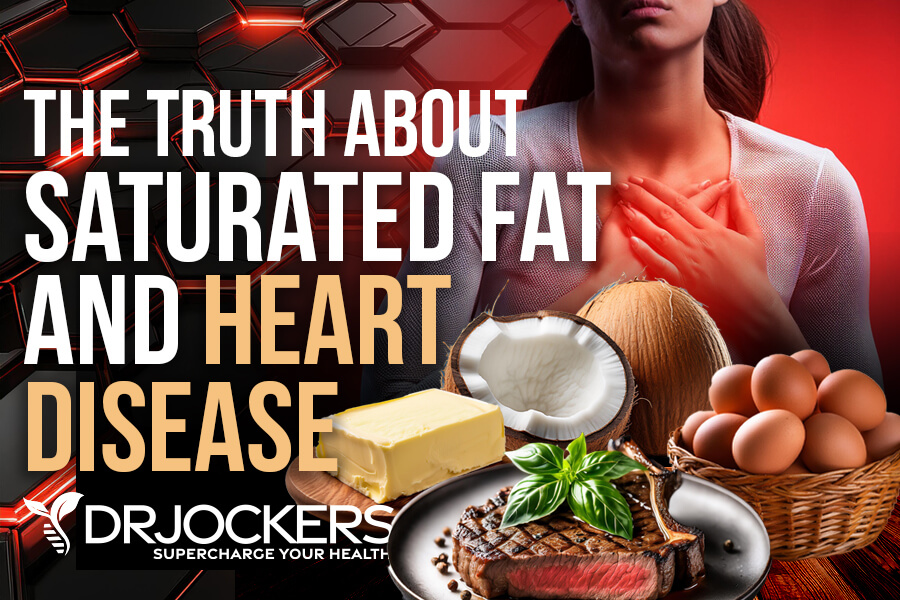 The Truth About Saturated Fat and Heart Disease
The Truth About Saturated Fat and Heart Disease
When you hear the word saturated fats, you may automatically associate them with being ‘bad’. Many people, including doctors and healthcare professionals, believe that saturated fats are unhealthy and can increase your risk of heart disease. However, newer research suggests that saturated fats are actually not associated with a higher risk of heart disease at all and may offer some health benefits.
In this article, I will discuss what saturated fats are. You will learn about the difference between saturated fats and unsaturated fats, including their chemical composition and sources. I will share the major sources and the potential health benefits of saturated fats.
You will learn the answer to the question, “Does Eating Saturated Fat Increase Heart Disease Risk?” (hint: it doesn’t). You will learn about the few health issues that may be caused by saturated fats, including poor bile flow, gut dysbiosis, and APOE4 gene. Finally, I will share how much saturated fat I recommend you consume.

What Is Saturated Fat?
Saturated fats are fatty acids with no double bonds between the carbon molecules. They are fatty acids found in meat, dairy, and other foods.
Now you probably heard about saturated fats. And chances are you were told it’s ‘Bad fat’. What most of us have been taught to believe is that saturated fat is bad for our hearts. This is because of the lipid hypothesis for cardiovascular diseases, which predominates in the medical world and in the cardiology world.
This lipid hypothesis suggests that the higher your cholesterol, particularly low-density lipoprotein cholesterol (LDL), the greater your risk of developing heart disease. LDL cholesterol is also called the ‘bad fat’.
The lipid hypothesis suggests that saturated fat increases LDL cholesterol. LDL cholesterol increases your risk of heart disease, and therefore, saturated fat increases your risk of heart disease. As you can see, it gets lumped into that whole category of cholesterol and cardiovascular disease.
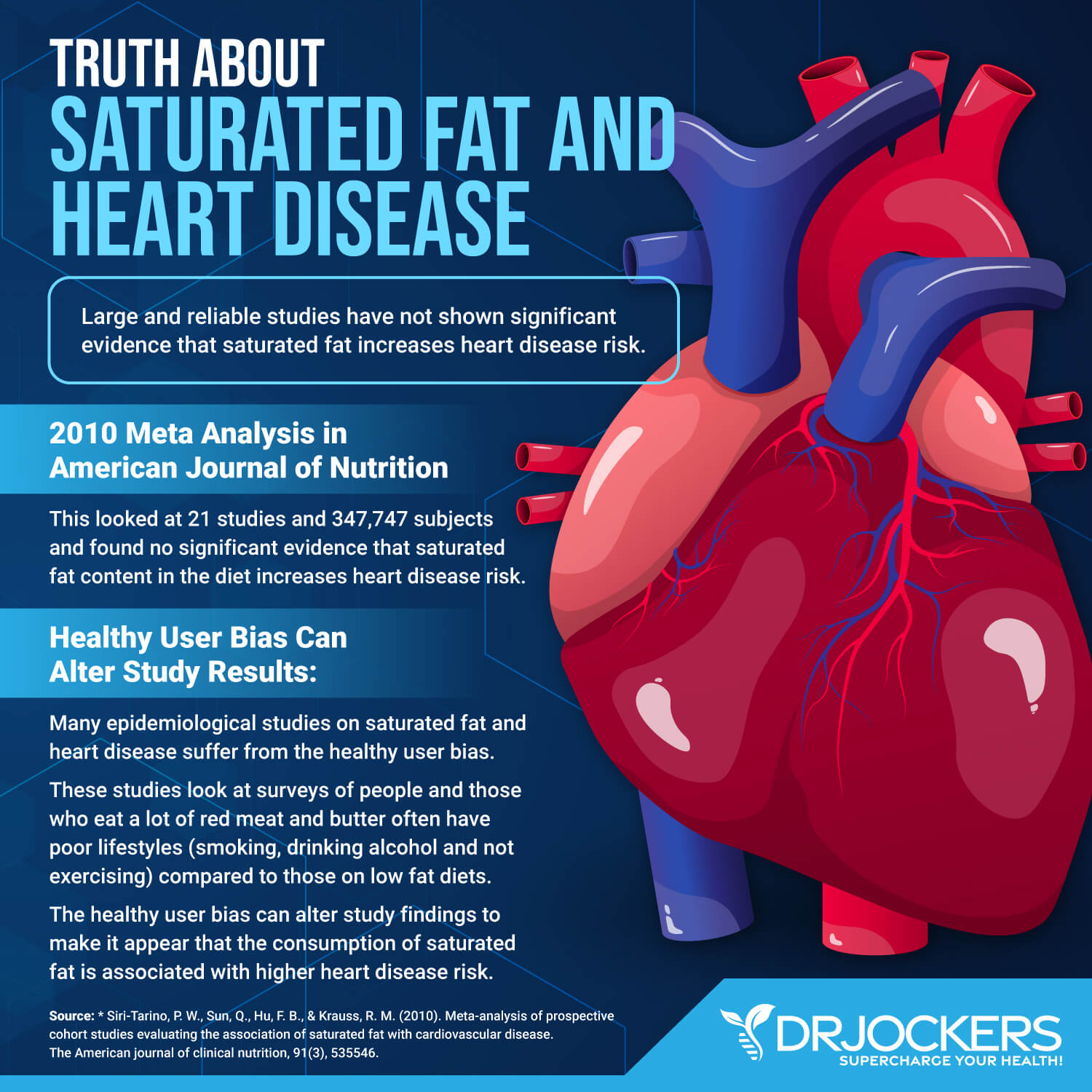
For these reasons, the American Heart Association and many doctors recommend either cutting out or limiting your saturated fat intake to avoid the risk of heart disease, weight gain, and other health issues.
Many epidemiological studies on saturated fat and heart disease suffer from the healthy user bias. These studies look at surveys of people, and those who eat a lot of red meat and butter often have poor lifestyles compared to those on low-fat diets.
In these studies, those who ate more saturated fat were more likely to smoke, drink alcohol, and not exercise. The healthy user bias can alter study findings to make it appear that the consumption of saturated fat is associated with higher heart disease risk.
Now the situation is much more complicated than this, and saturated fats may not be as bad as we are taught to believe. Newer research has found that while unsaturated fatty acids can have a positive impact on cardiovascular health, saturated fats don’t have a direct negative effect, and as I will discuss in this article, there may be some benefits too.
According to a 2010 meta-analysis published in the American Journal of Clinical Nutrition, saturated fats may not cause heart disease (1). They looked at over 350,000 people, what they ate, and the saturated fat content. What they found was that there was no relationship between the amount of saturated fat somebody consumed and their risk of coronary heart disease and coronary vascular disease.
There is also a 2010 Japanese study published in the American Journal of Clinical Nutrition that found similar results (2). They looked at 58,000 Japanese men over 14 years, and what they showed was that the higher saturated fat content in their nutrition plan had no increased risk of coronary heart disease.
They found that they had an inverse risk, meaning a lower risk of developing a stroke or some sort of cerebrovascular disease. So, the study showed that saturated fat didn’t increase but, on the contrary, actually reduced the risk of heart disease.
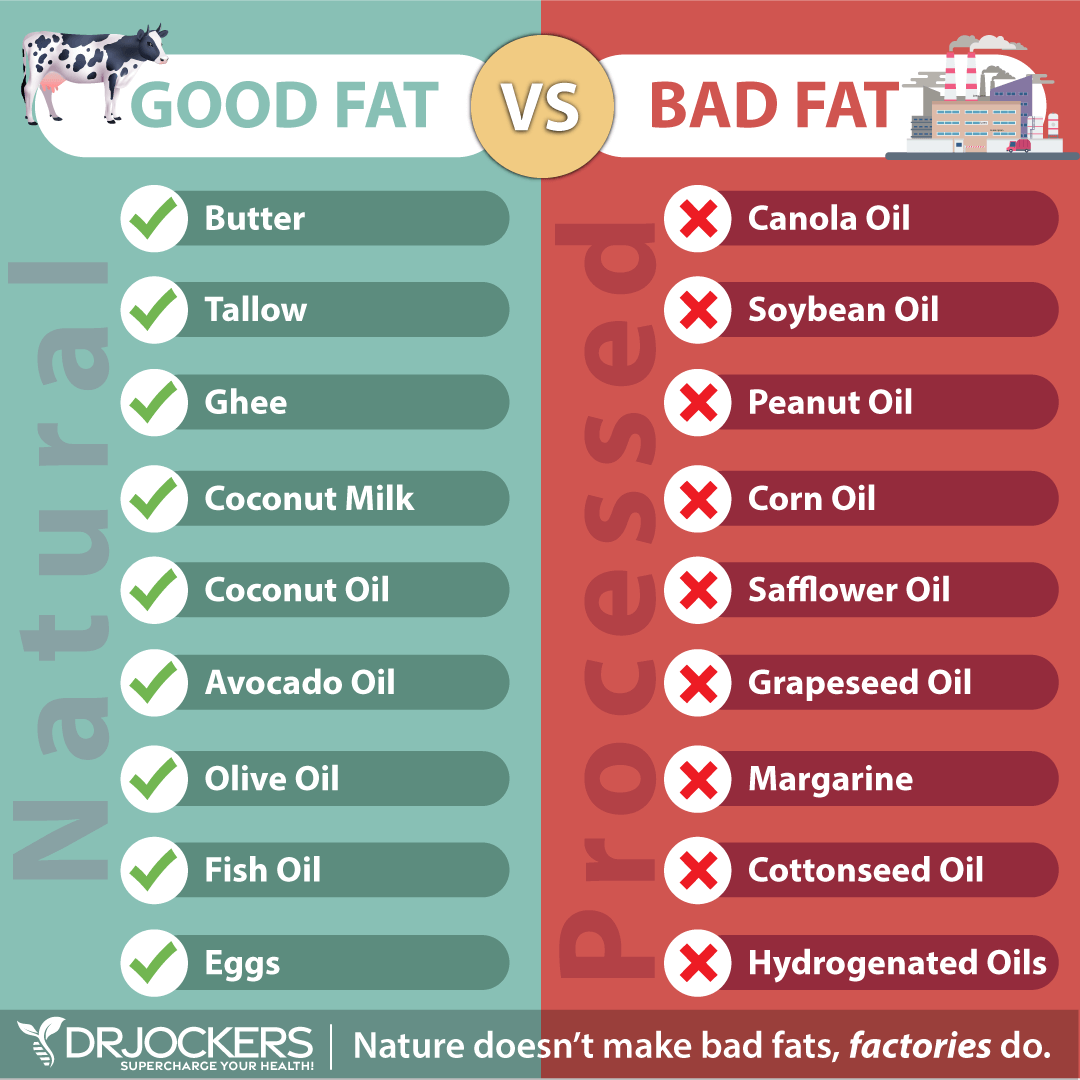
Oreo Cookies and Cholesterol Study:
Finally, I need to mention a 2024 study published in Metabolites. This study showed that Oreo cookies lowered LDL cholesterol, the bad cholesterol, significantly more than high-intensity statin drugs (3). In this study, they were looking at a person on a ketogenic diet and who is a class of individuals called lean mass M hyper responders.
These people are very lean and very healthy metabolically. When they go on a low-carbohydrate diet, they eat a lot more saturated fat, and also their LDL cholesterol goes way up. Adding 12 Oreos a day for 16 days got his LDL cholesterol to a normal level and better levels than statins. We need to rethink the lipid hypothesis.
If you are interested in learning more about this study, I’ve written an entire article about it here. Of course, Oreos are ultra-processed foods and full of sugar, and you shouldn’t consume them to improve your cholesterol or for any other reason. This unique study just shows that cholesterol is a more complex issue than many make it out to be, and saturated fats may not be bad for you.
As far as cholesterol, to learn about the truth behind ‘bad cholesterol’ and cholesterol levels, I recommend this article.
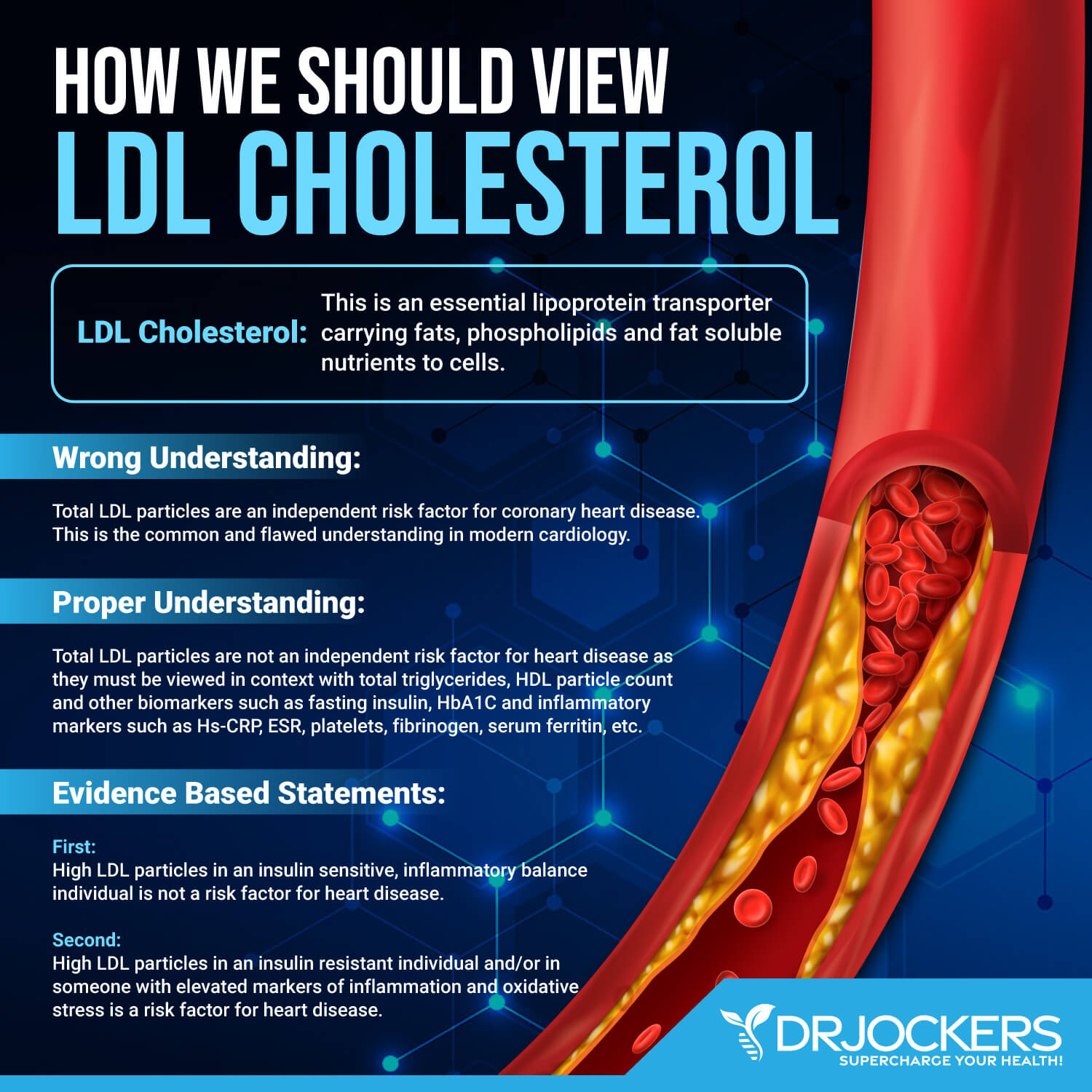
Saturated Fat vs Unsaturated Fats
The difference between saturated and unsaturated fats lies in their chemical structures. Their structure affects their physical properties and health effects. Saturated fats consist of carbon chains where all carbon atoms are fully “saturated” with hydrogen atoms, forming single bonds between carbons. The structure of saturated fats is solid at room temperature. It’s also more stable.
Unsaturated fats contain one or more double bonds between carbon atoms. Monounsaturated fats have a single double bond, and polyunsaturated fats have multiple double bonds. These double bonds prevent tight packing, which makes unsaturated fats liquid at room temperature and less stable.
Sources of saturated fats include animal products like butter, cheese, and fatty cuts of meat, as well as tropical oils such as coconut and palm oil. Sources of unsaturated fats are primarily found in plant-based oils, such as olive oil, canola oil, and sunflower oil, nuts, seeds, and fatty fish, such as salmon and mackerel.
Unsaturated fats are generally considered healthier due to their role in reducing bad cholesterol levels and supporting heart health; however, as you will learn, saturated fats can also have an important role and benefits in your diet.
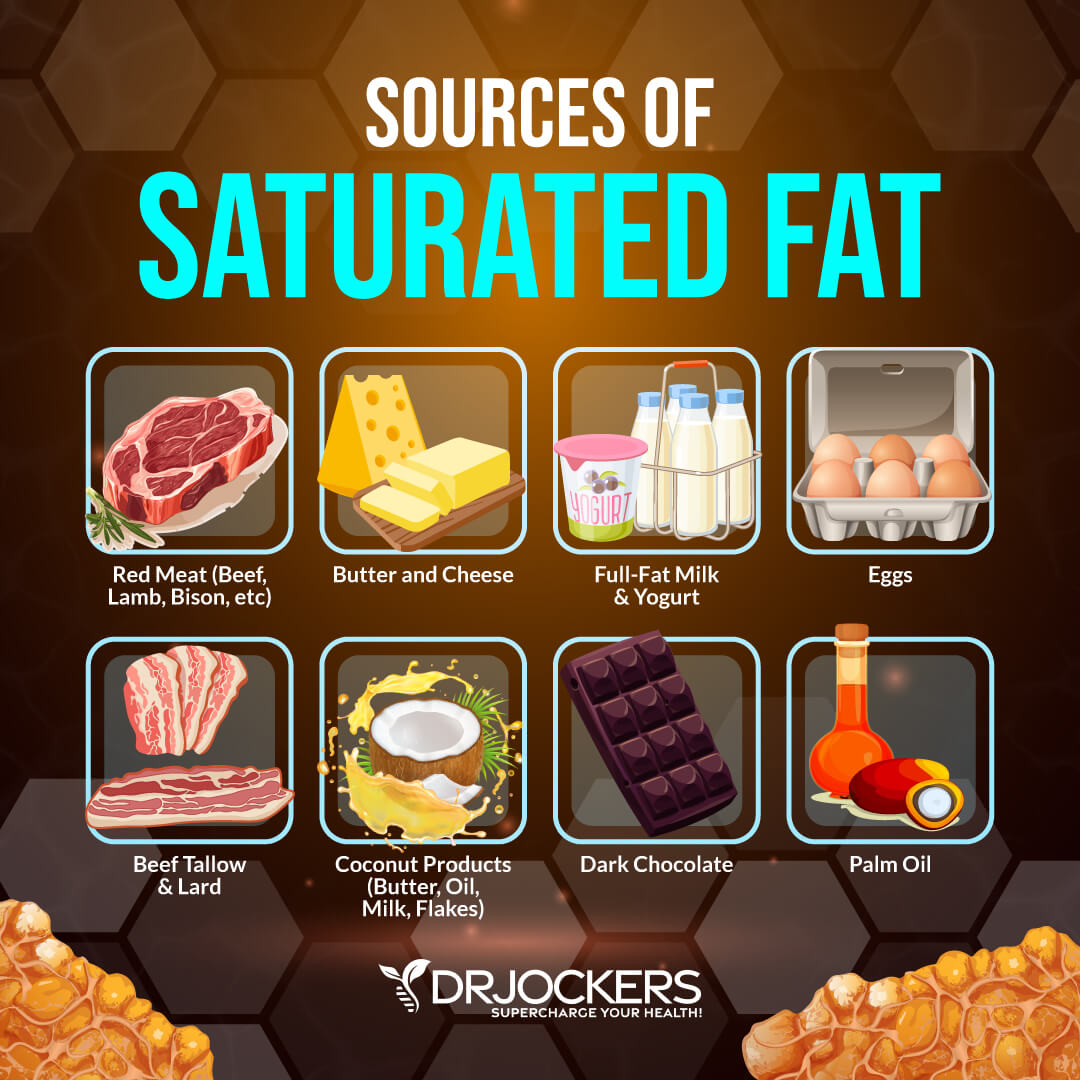
Major Sources of Saturated Fat
Major sources of saturated fats include:
Animal Products:
- Fatty cuts of red meat, such as beef, lamb, and pork
- Poultry skin
- Lard
- Full-fat dairy products, including butter, ghee, cheese, cream, and whole milk
- Eggs
Plant-based sources:
- Coconut oil
- Palm oil
- Palm kernel oil
- Dark chocolate
Additionally, many processed foods, such as baked goods made with butter and shortening, such as cookies, pastries, and cakes, fried foods prepared with saturated oils, packaged snacks, including chips and crackers with palm oil, and greasy fast food, including pizza and burgers, are very high in saturated fats.
However, processed foods high in saturated fats are not healthy sources as they are not whole foods and contain lots of inflammatory ingredients, such as refined sugar, additives, and artificial ingredients.
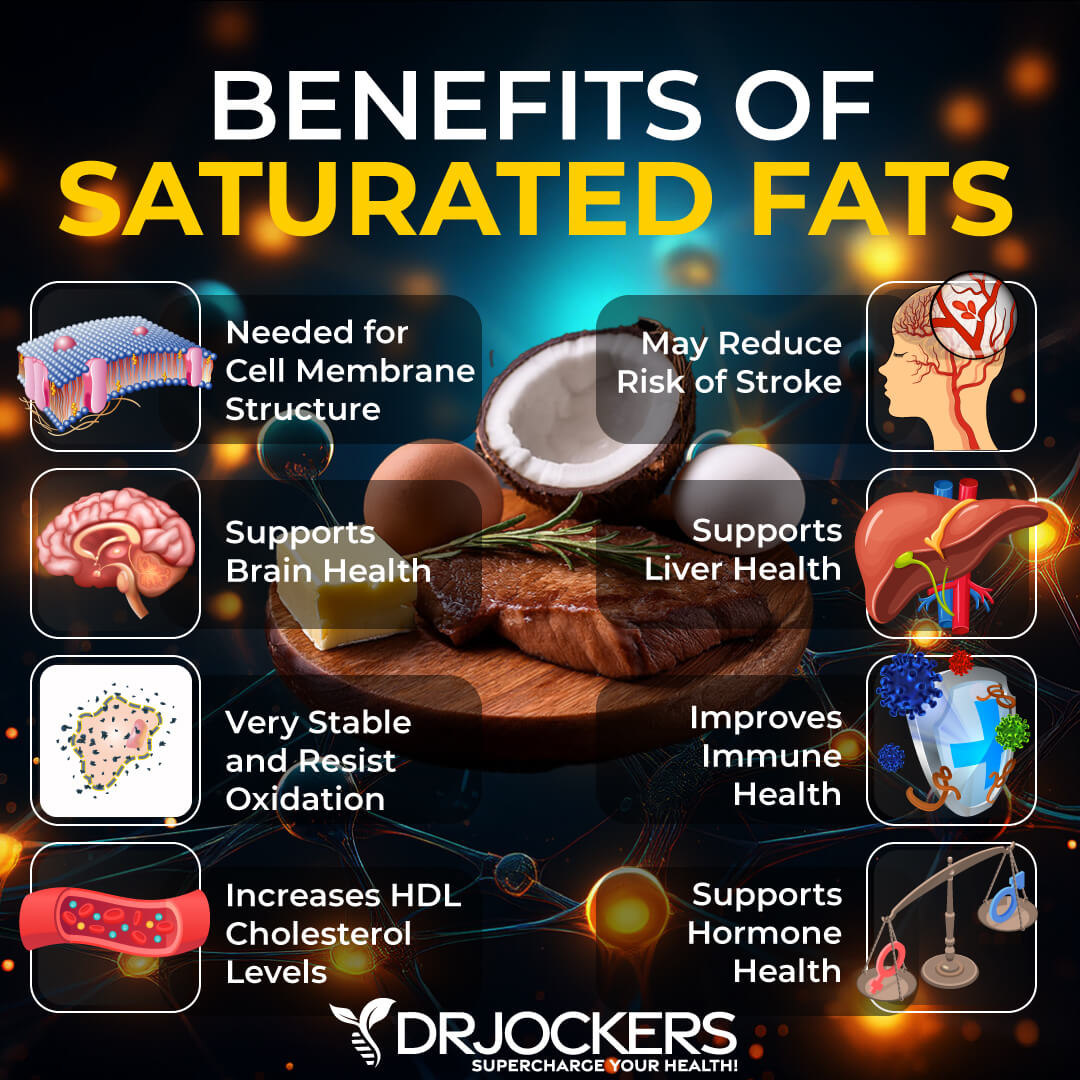
Benefits of Saturated Fat
Saturated fats offer several potential health benefits we don’t hear about much. Here are the benefits of saturated fats:
Cell Membrane Structure and Stability
Saturated fats play an important role in supporting your cell membrane structure and stability. The cell membrane is made up of a lipid bilayer, which needs a variety of fatty acids to maintain both integrity and functionality.
Saturated fats are stable with a tightly packed molecular structure, which offers more rigidity and stability to the cell membrane. It helps the cell membrane to retain its shape and resist fluidity underlying changing temperatures.
Cell membrane structure and stability are critical for protecting cellular components, supporting cellular signaling, and allowing the transport of nutrients and waste. Without the help of saturated fats, cell membranes may turn too fragile or fluid, which can cause issues with cellular health and functioning.
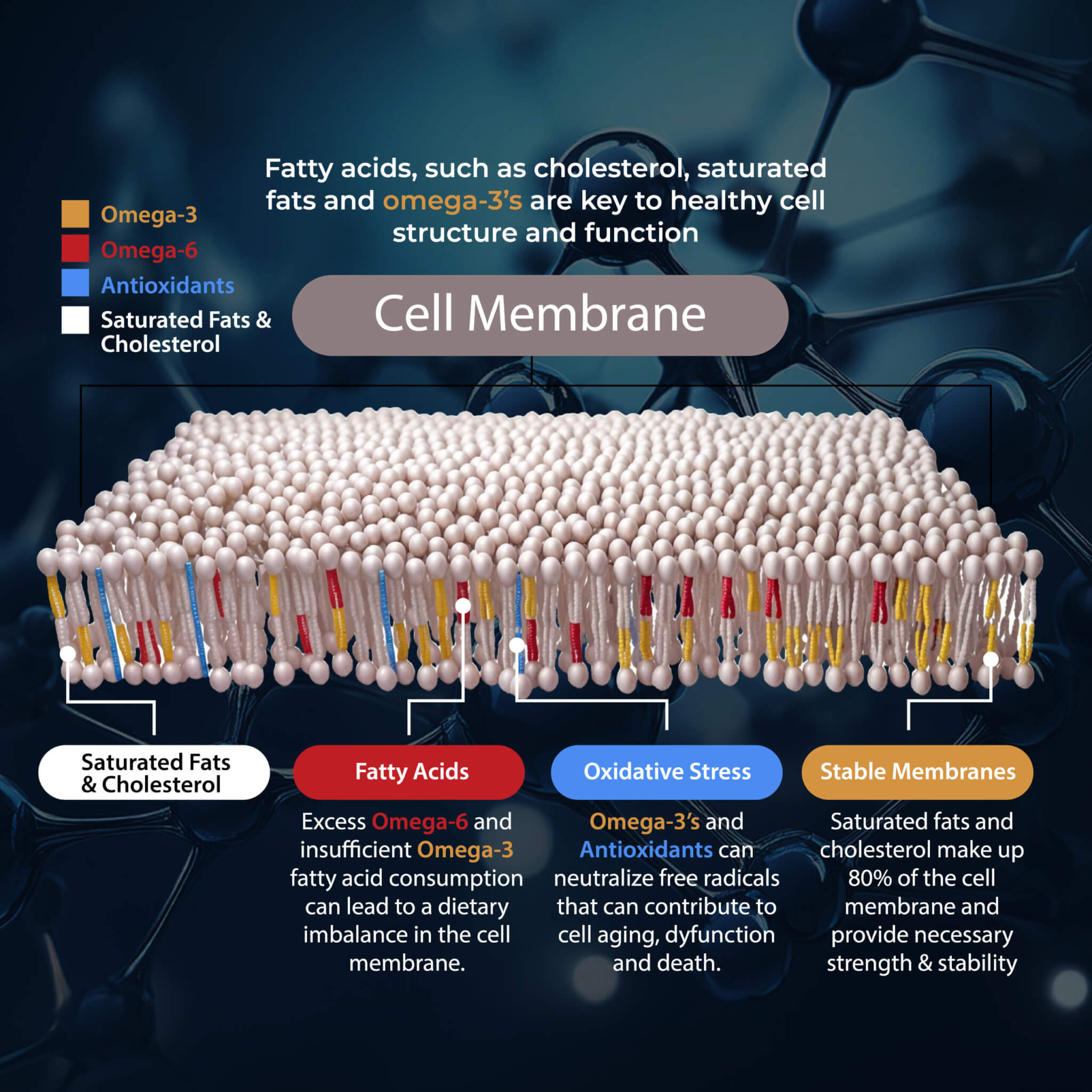
Supports Brain Health
Saturated fats, particularly medium-chain triglycerides (MCTs), may also support your brain health. MCTs come from coconut oil and palm kernel oil. They can be quickly metabolized in your liver to make ketones, which offer an alternative energy source to sugar for your brain.
MCTs may reduce chronic inflammation and brain inflammation and aid neuronal integrity. They may support cognitive function, memory, and overall brain health.
This may be particularly beneficial to reduce the risk or support those with Alzheimer’s disease and other neurological or brain issues. A 2022 study published in Alzheimer’s & Dementia has found that a 9-month use of MCTs improved the cognition of Alzheimer’s patients (4).
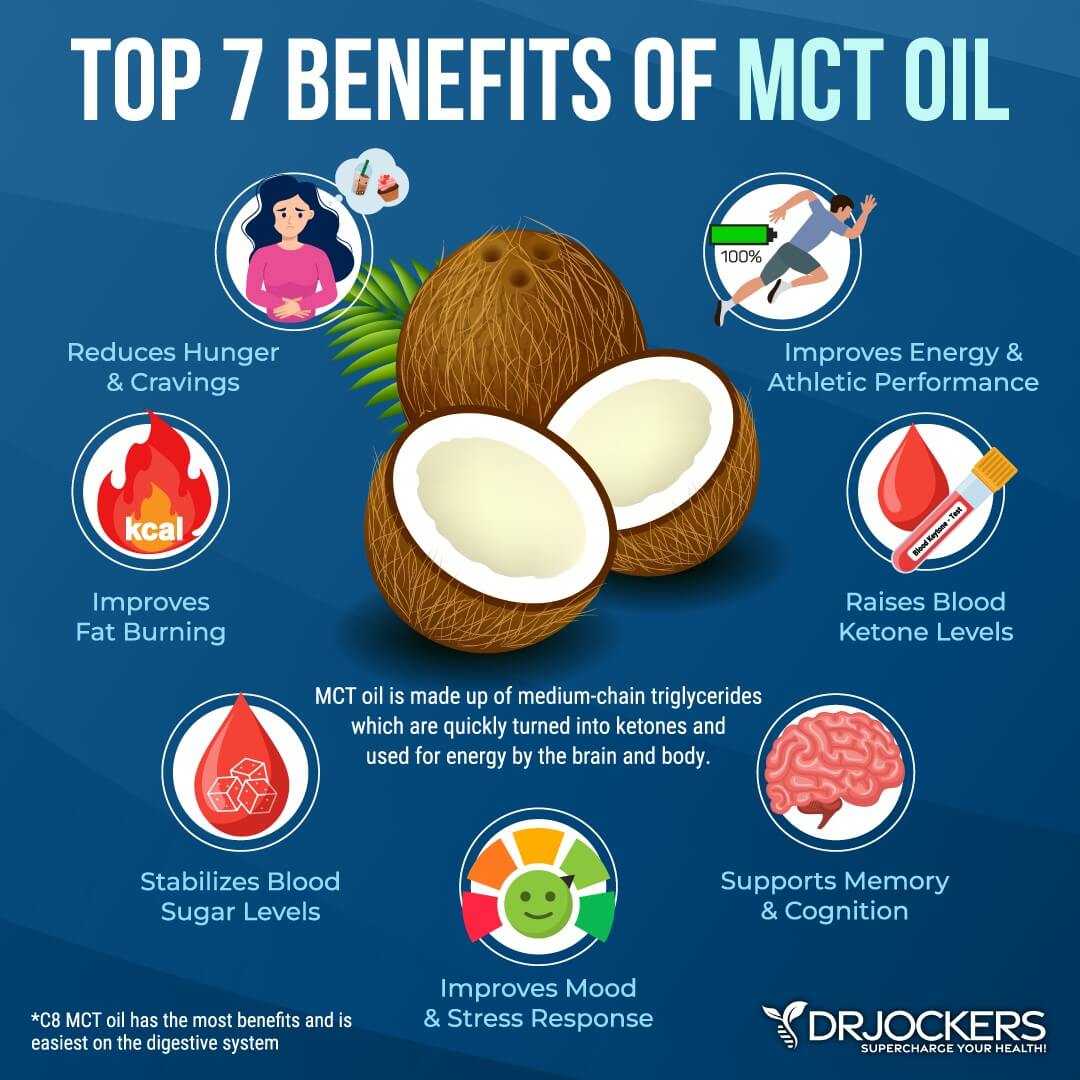
Very Stable and Reduces Oxidation
Saturated fats lack double bonds like other fats. This means that they are more stable and less prone to oxidation compared to polyunsaturated fats, which have multiple bonds and are more susceptible to oxidative damage.
The stability of saturated fats may help your body decrease the formation of free radicals, reduce oxidative stress, and lower inflammation. It also makes it an ideal fat for cooking as it can maintain its structure without breaking down into byproducts that can be harmful to your body.
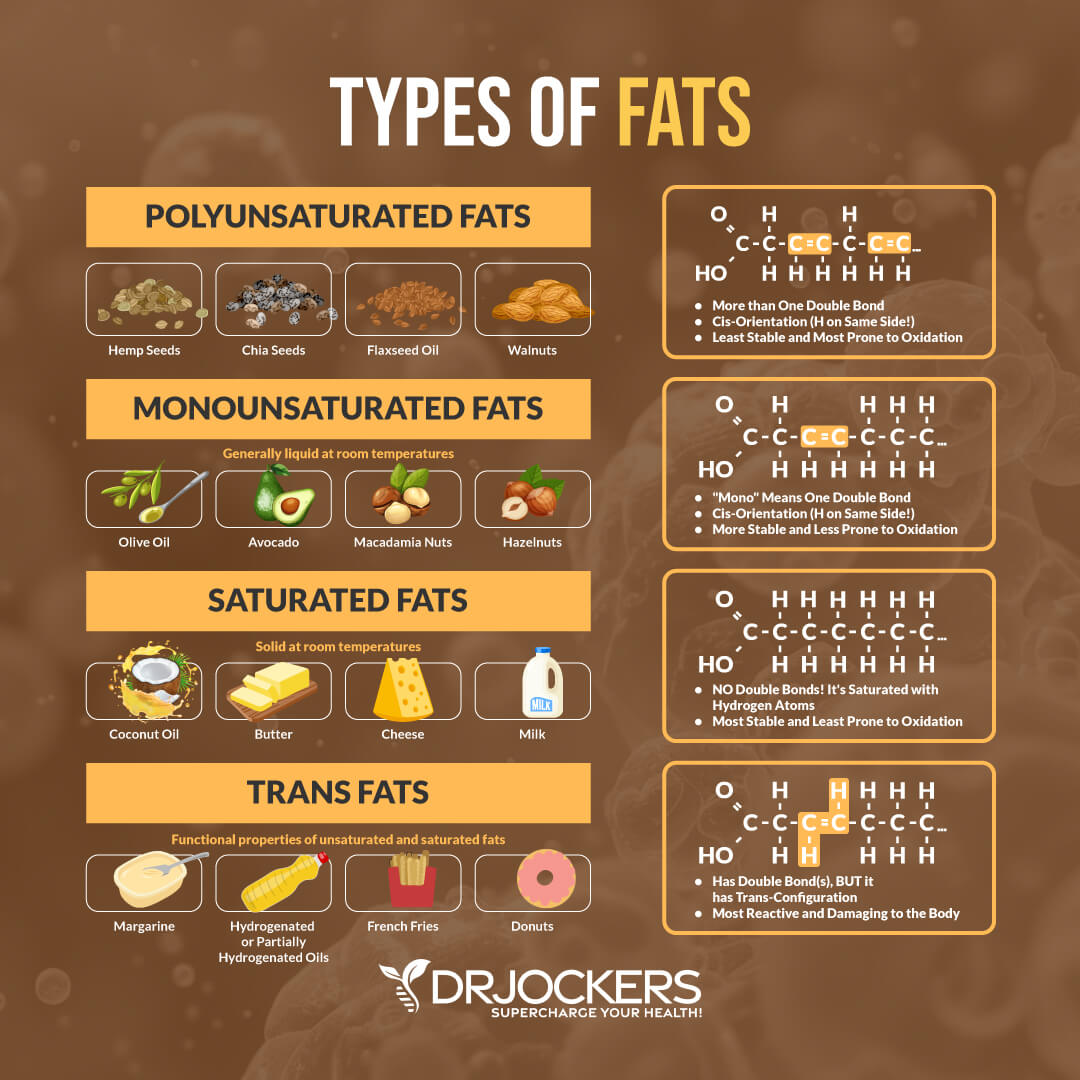
Increases HDL Cholesterol
Saturated fats can actually increase your high-density lipoprotein (HDL) cholesterol levels. This is your ‘good cholesterol’ that allows the transport of cholesterol away from your arteries back to your liver for recycling and removal. This can reduce the risk of plaque buildup and cardiovascular disease.
According to a 2018 study published in Open Heart, saturated fats may increase your HDL cholesterol levels and your overall cholesterol profile (5). They may be better at improving HDL cholesterol levels than a diet high in polyunsaturated fats or carbohydrates. This beneficial impact on HDL cholesterol only supports the idea that a balanced saturated fat intake for maintaining cardiovascular health.
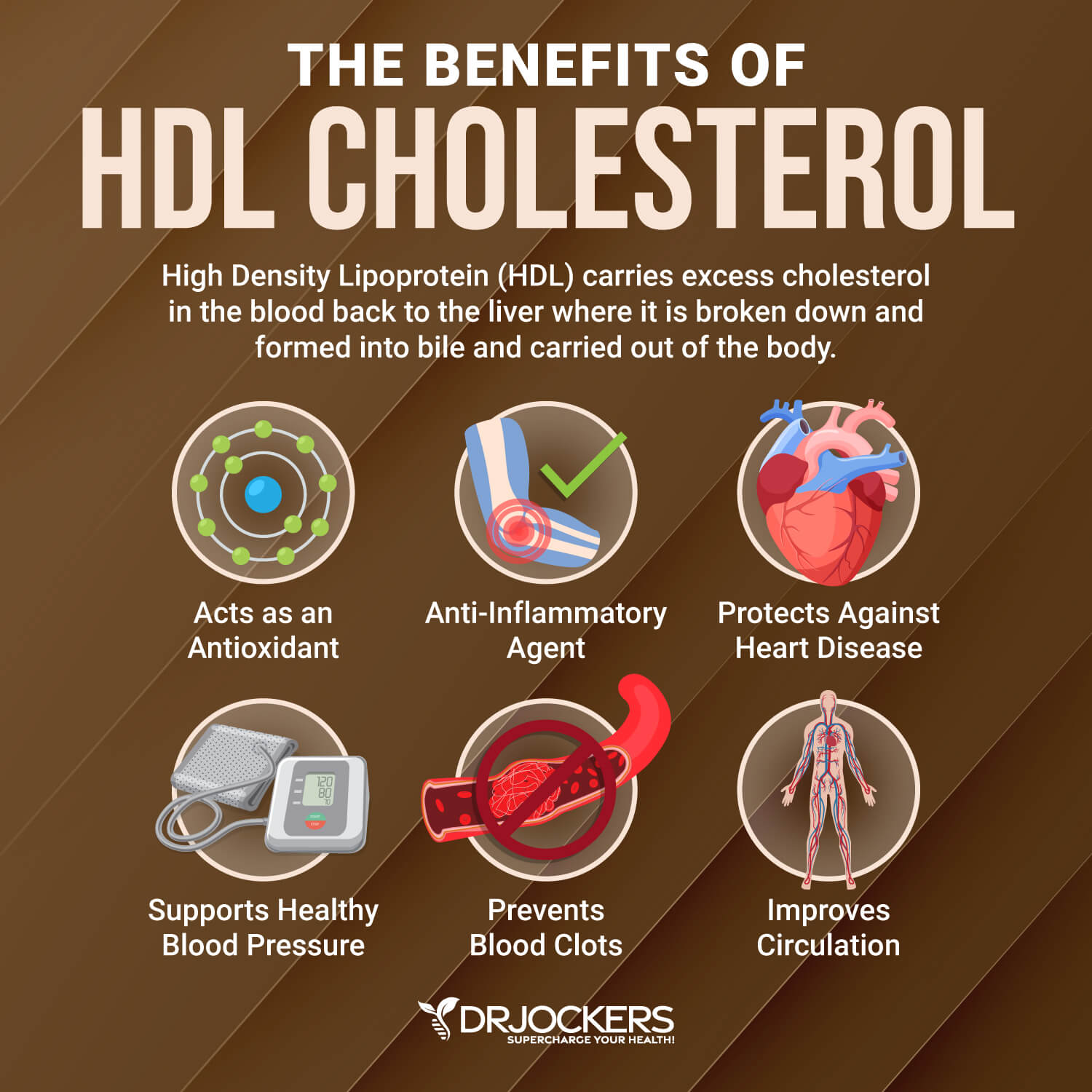
May Reduce Stroke Risk
Finally, saturated fats may even help to reduce the risk of stroke, according to new scientific evidence. According to a 2020 review published in Nutrition, Metabolism, and Cardiovascular Diseases: NMCD, saturated fatty acids may reduce the risk of stroke, and every 10 g/day increase in saturated fat intake is linked to a 6 percent relative risk reduction of stroke (6).
This happens because saturated fats may help to positively influence lipid profiles and vascular health. Unlike trans fats and processed polyunsaturated fats, it seems that saturated fats do not increase chronic inflammation or oxidative stress. Chronic inflammation and oxidative stress are, of course, major risk factors for stroke. Thus, it seems saturated fats don’t contribute to this increased risk.
Moreover, as we discussed, saturated fats may increase the structure and function of your cell membranes, both in your blood vessels and brain, which may reduce the risk of vascular damage. Though research suggests that a higher saturated fat intake may lower the risk of stroke, it doesn’t mean you should only eat saturated fats in isolation, but they can and should be part of a balanced, nutrient-dense diet.
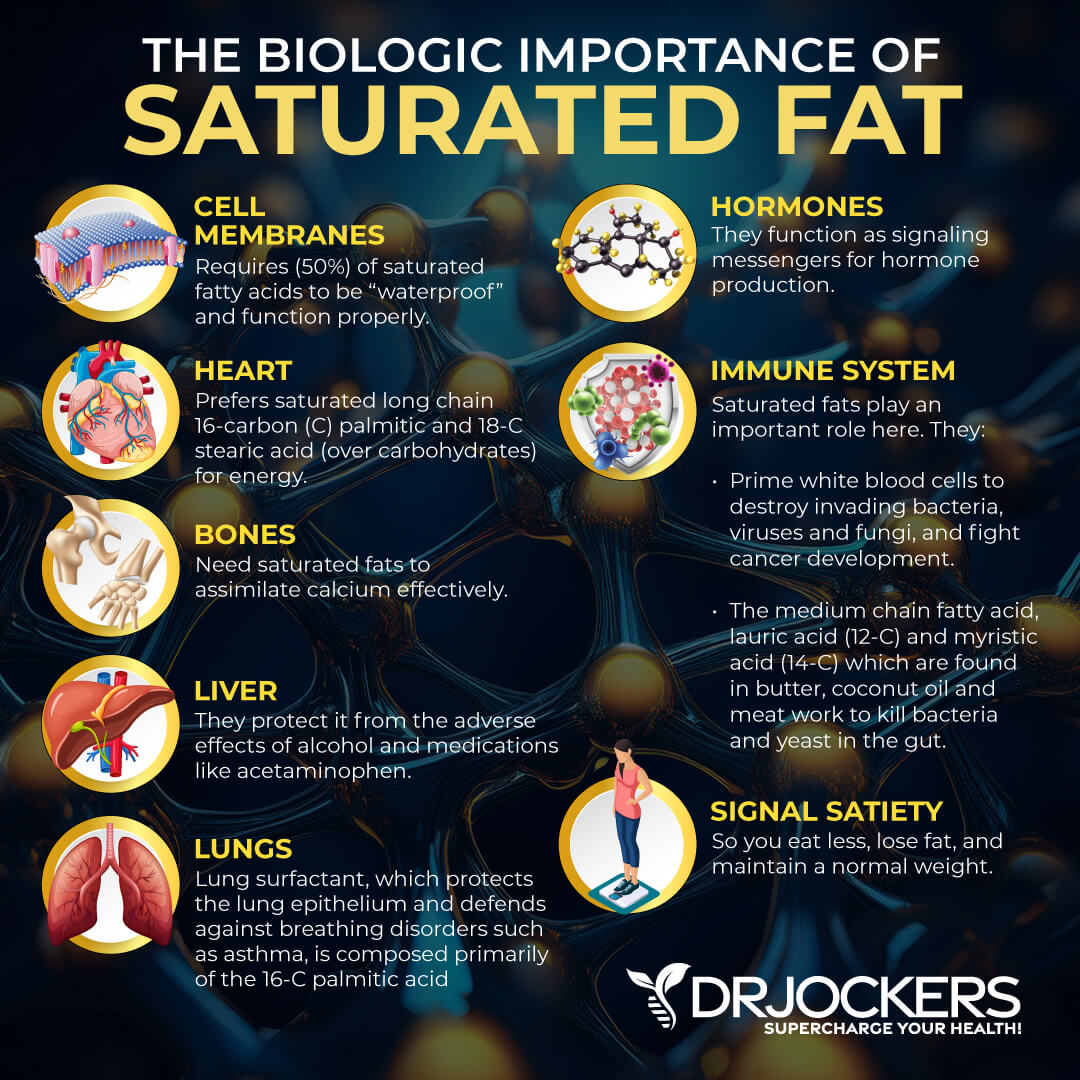
Does Eating Saturated Fat Increase Heart Disease Risk?
The diet-heart hypothesis believes that eating foods high in saturated fat and cholesterol can increase cholesterol levels in our blood and increase the risk of heart disease. However, it seems that this may not be the case, according to research that I will review.
While some studies do suggest that eating saturated fats can increase blood cholesterol levels, these effects are short-term for a few weeks. Long-term studies show us something different; in fact, they show no link between saturated fat intake and blood cholesterol levels.
Research on low-carbohydrate diets, like this 2012 review published in Obesity Review, suggests that high-fat, low-carb diets, which tend to be quite high in saturated fats, help to reduce the risk of LDL cholesterol, body weight, and other risk factors for cardiovascular disease (7).
Other studies like this 2010 Japanese study published in the American Journal of Clinical Nutrition have found no link between saturated fat and heart disease, even outside of the high-fat, low-carb diet context (2).
According to a 2010 review published in the American Journal of Clinical Nutrition, there is no significant evidence that saturated fats could increase the risk of heart disease, based on 21 studies and 347,747 subjects examined (8). However, we should note that everyone responds to saturated fats differently, and in the next sections, I will discuss in what situations and for whom a higher saturated fat diet may not be good.
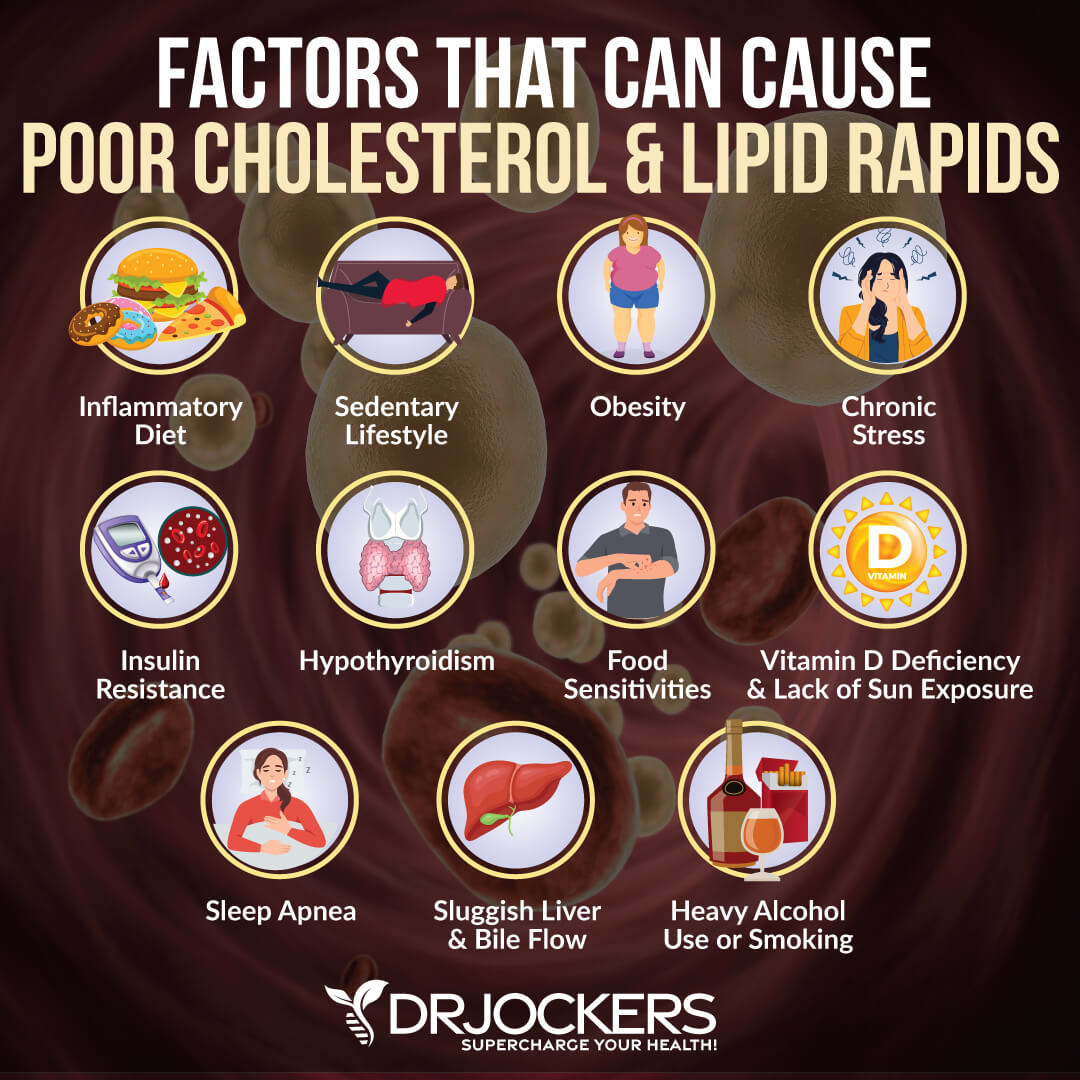
When Saturated Fat Can Cause Problems
Saturated fats are not generally a problem for most people. But if you have poor bile flow, they can be used as lipid rafts for problematic bacteria in the gut to get into the bloodstream and increase inflammation.
Let’s look at poor bile flow, gut dysbiosis, and the APOE4 gene, and how they may cause issues in a diet high in saturated fats.
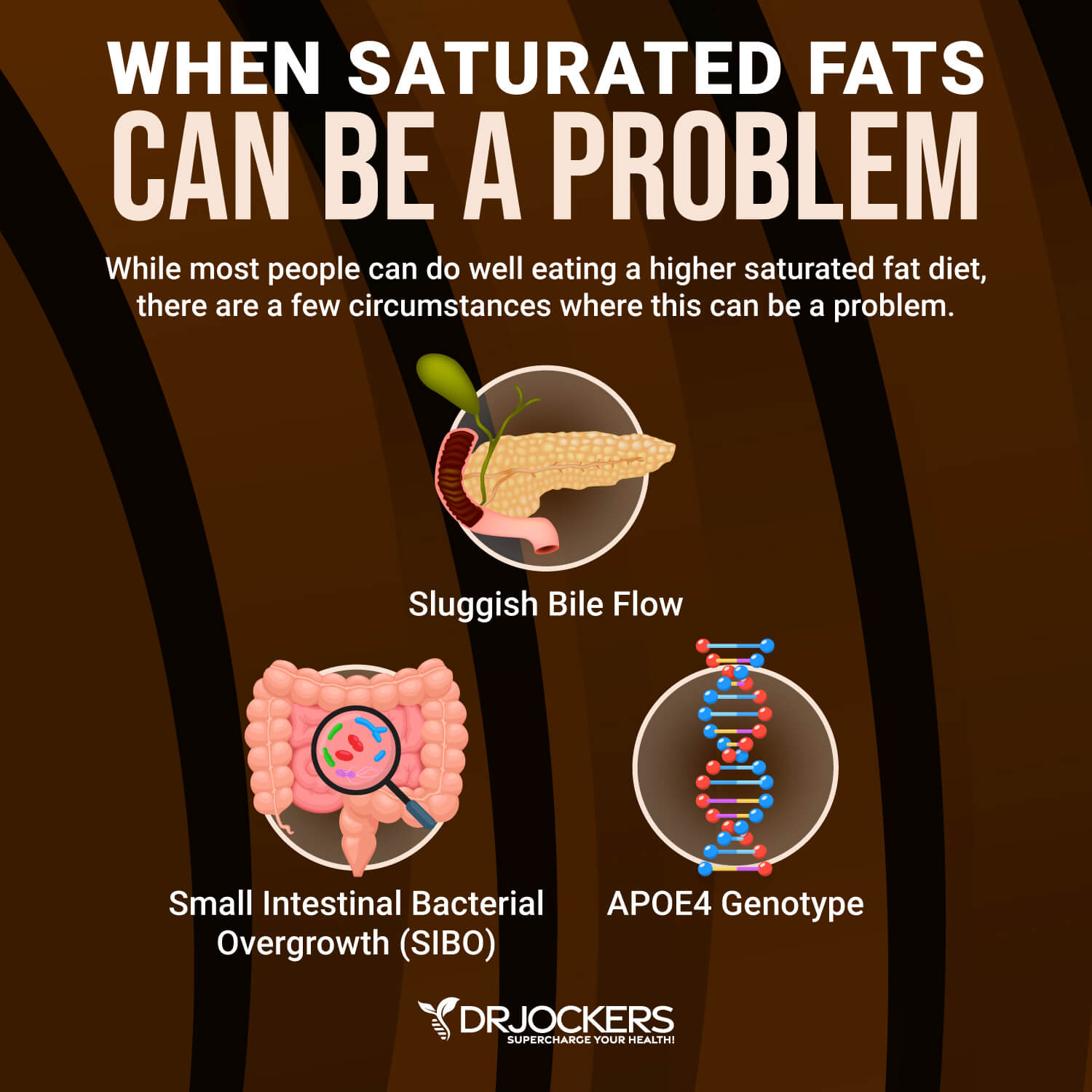
Poor Bile Flow and Gut Dysbiosis
If you have poor bile flow or gut dysbiosis, a high saturated fat diet may not be right for you. If you’re not producing enough bile, it can be a problem. A lot of people have very congested bile ducts in their liver and gallbladder.
However, bile is essential for emulsifying these fats, especially any sort of long-chain saturated fat, steric acid from animal fats, and coconut oil. You need bile to break down these saturated fats (9).
If you are not producing enough bile, you may experience more digestive distress, including diarrhea, constipation, gallstones, and pain in the liver area from a higher-fat and higher saturated fat diet. They may even develop pruritus, which is itchiness all over their body.
Individuals with these problems tend to have gut dysbiosis, small intestinal bacterial overgrowth (SIBO), and other gut health issues. They have poor bile flow.
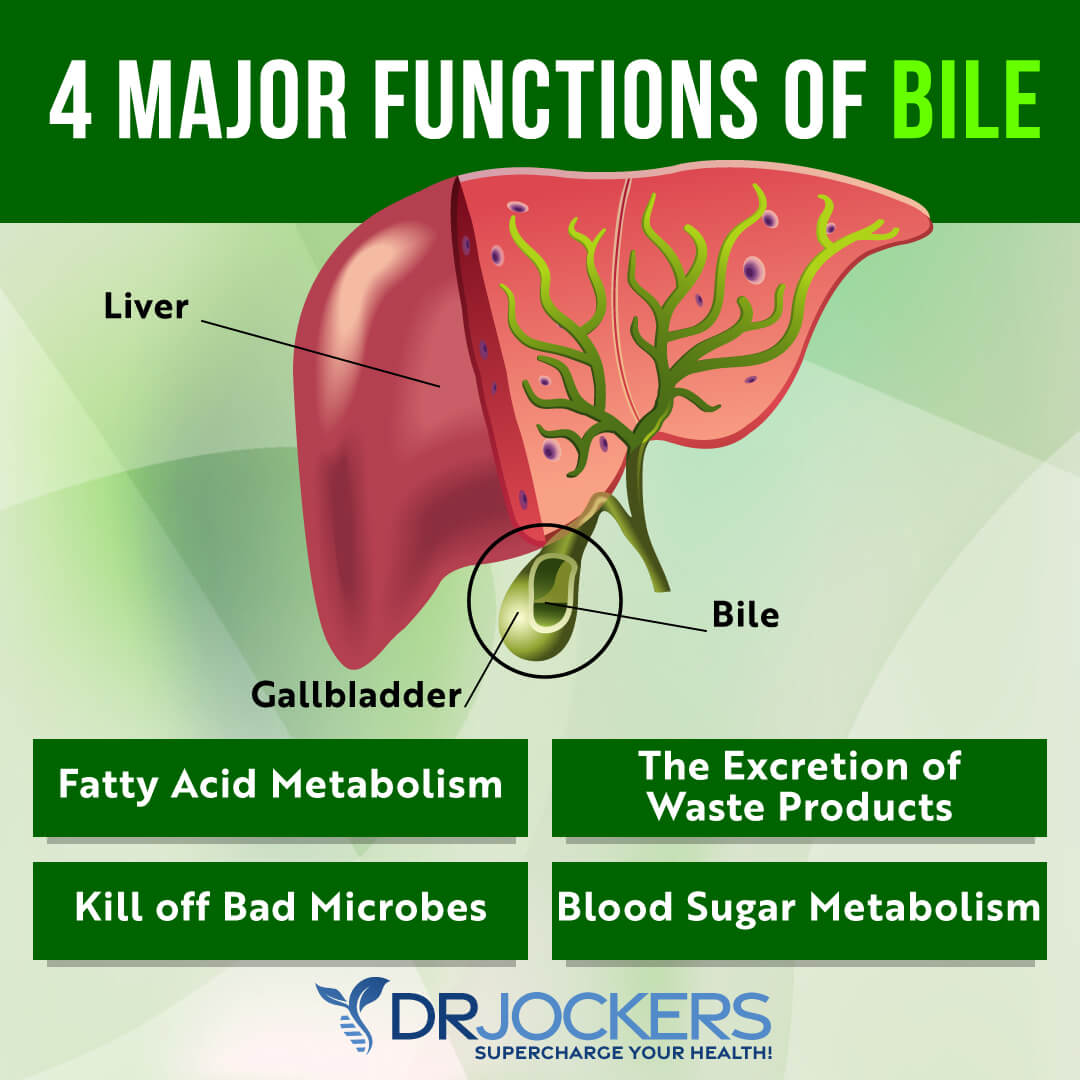
As a result, they won’t be able to metabolize and break down these fats in the small intestines, which can lead to inflammation and other issues. This can create a lipid fat, where they will, in a sense, be a carrier for bad gut microbes to get into the bloodstream, which drives up inflammation in the body.
So basically, if you have poor digestive health, a high saturated fat diet can be an issue. According to 2015 research published in Best Practice & Research In Clinical Gastroenterology, improving bile flow can do a lot of good for your health, including reducing the risk or improving obesity, diabetes, and metabolic syndrome (10). To improve bile flow and gut microbiome health, I have lots of articles and videos on this topic.
A few simple things you can do are use a castor oil pack over your gallbladder or liver for 45 minutes to an hour every single day. This will help dilate and open up those bile ducts and help them flow. Milk thistle, cilantro, parsley, radishes, artichokes, dandelions, and other bitters may also help to improve liver health and bile flow.
In this article, you can learn more about the herbs that can help with bile flow. This article offers tips on better blue flow and liver health. To learn more about how to improve your gut microbiome, I recommend this article.

APOE4 Gene
A high saturated fat diet may also not be appropriate for people with the APOE4 gene. The APOE gene is responsible for prompting your body to make the apolipoprotein E protein. APOE helps to blend lipids (fats) to make lipoproteins.
Lipoproteins are molecules made of lipids and proteins that transport cholesterol and other fats through your bloodstream to your cells, where they are needed. Healthy levels of cholesterol are critical for reducing your risk of any diseases that affect your blood vessels or heart, including heart disease, heart attacks, and stroke. Research suggests that a genetic variation of the APOE gene on chromosome 19 may play a role in developing Alzheimer’s disease.
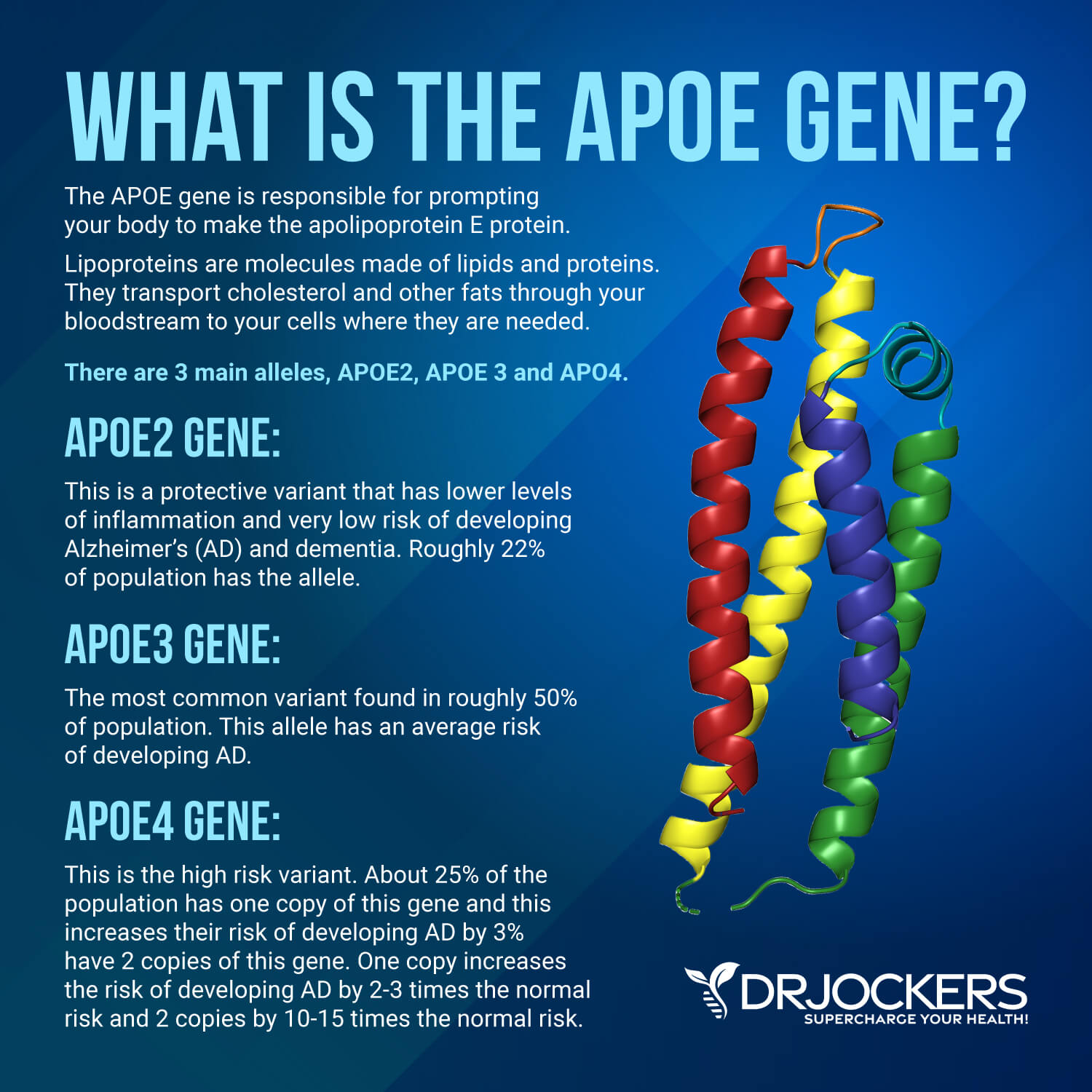
There are three different main variations (alleles) of the APOE gene: the APOE2, the APOE3, and the APOE4. The APOE4 gene is connected to the increased risk of developing Alzheimer’s disease.
APOE3 may play a neutral role, and APOE2 may reduce your risk factors (11, 12). You can learn more about the APOE4 gene and Alzheimer’s from this article.
People with the APOE4 genotype only make up about 25% of the population; most people have APOE3 or APOE2. However, for those with the APOE4 gene, I recommend a high monounsaturated diet and keeping saturated fats low, maybe around 10 to a maximum of 20 percent of your fats only.
I recommend consuming a lot of extra virgin olive oil for these people, which is a great source of monounsaturated fat, but not saturated fat.
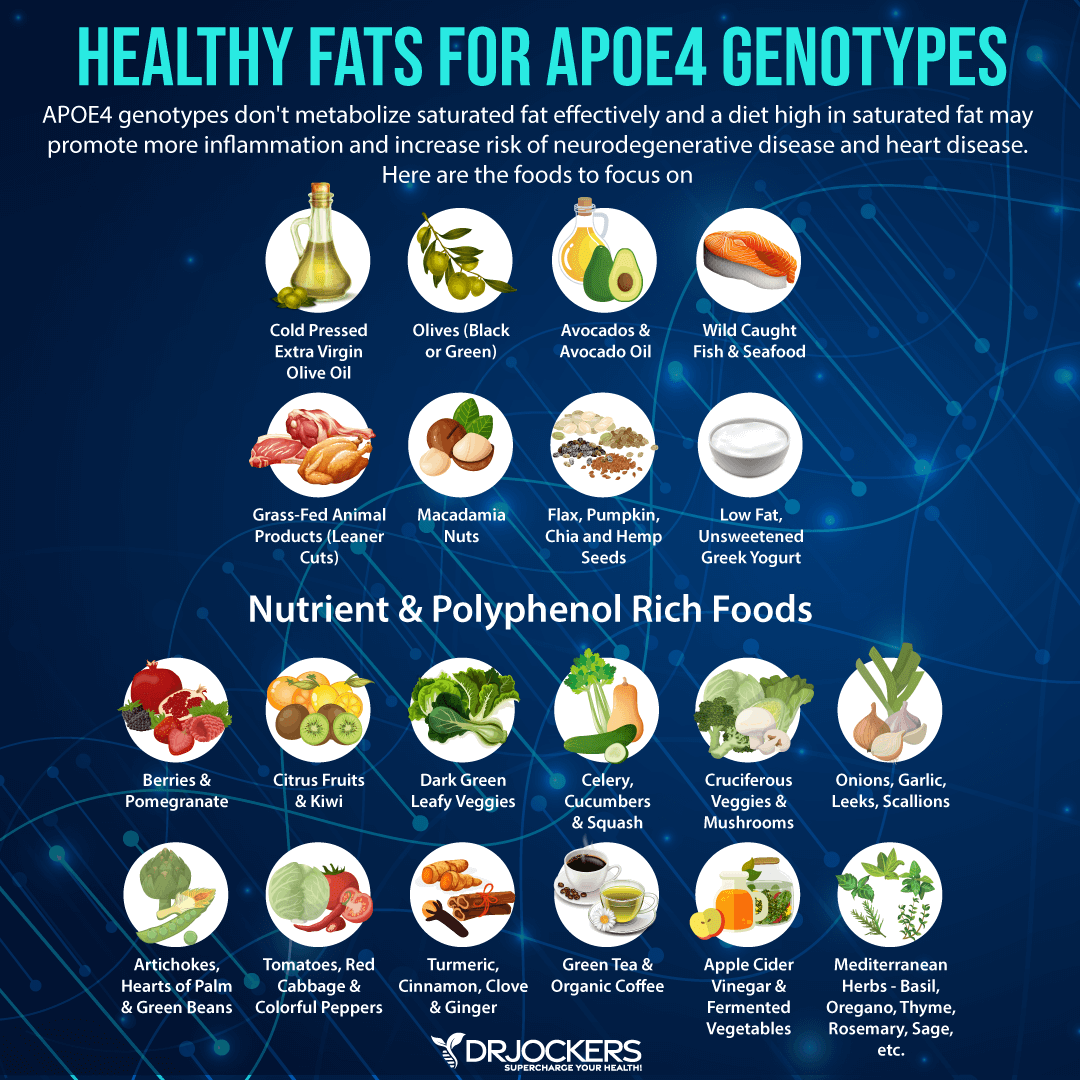
How Much Saturated Fat Should You Consume?
How much saturated fat you can and should consume depends on you. For most people, about 50 to 60 percent of the fat they consume is saturated fat.
However, if you have compromised gut health or the APOE4 gene, you should aim for 10 to 20 percent of total fat consumption from saturated fats. If you are unsure what’s right for you, you can always speak with a functional medicine doctor or functional nutritionist for guidance.
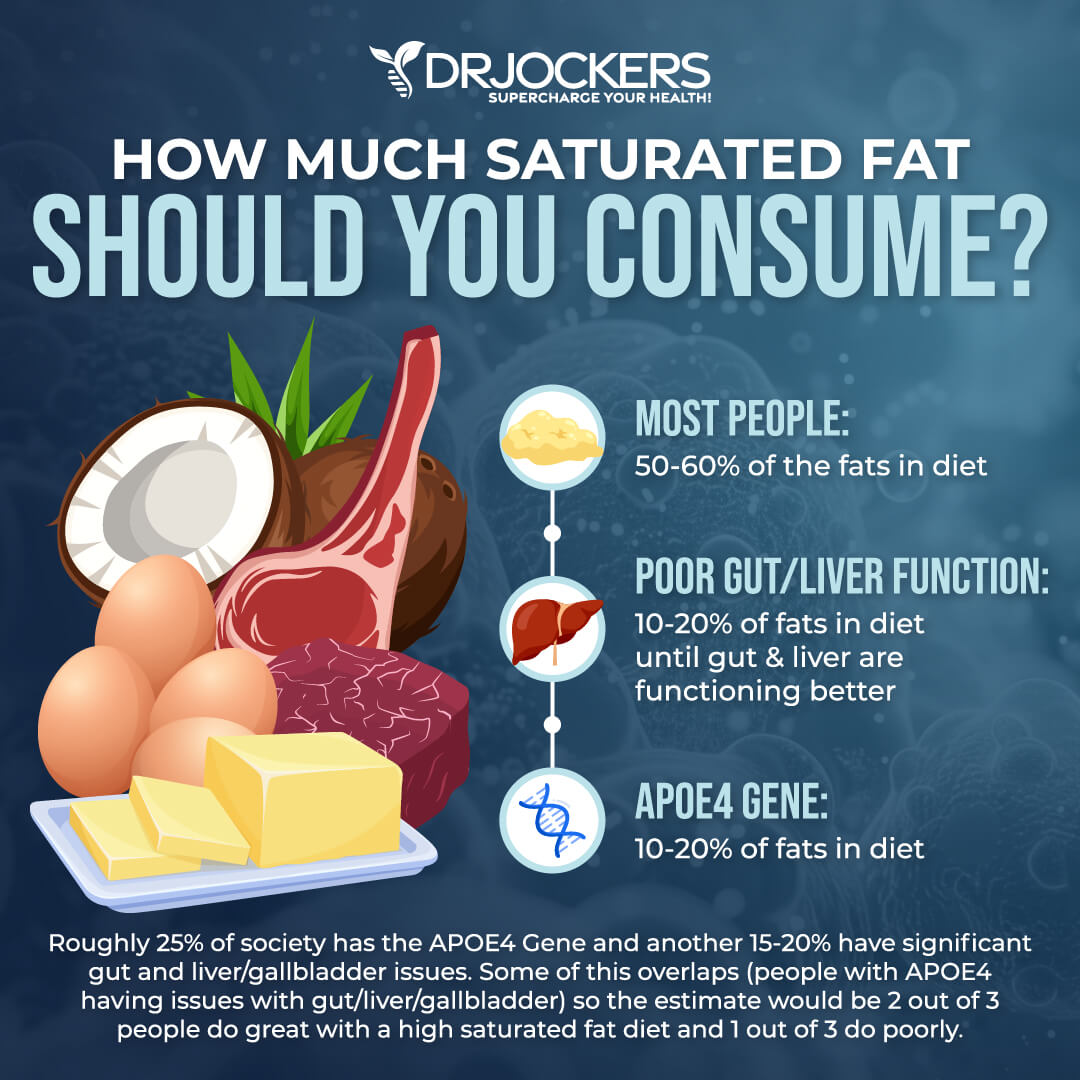
Final Thoughts
Saturated fats were long believed to be unhealthy and a risk for heart disease. However, new research found that there is no association between saturated fats and heart disease.
Saturated fats can offer health benefits and can be an important part of a healthy diet. I recommend that you follow my guidance and recommendations in this article on how much saturated fat to consume and from what sources.
If you want to work with a functional health coach, I recommend this article with tips on how to find a great coach. Our website offers long-distance functional health coaching programs. For further support with your health goals, just reach out, and our fantastic coaches are here to support your journey.
Inflammation Crushing Ebundle
The Inflammation Crushing Ebundle is designed to help you improve your brain, liver, immune system and discover the healing strategies, foods and recipes to burn fat, reduce inflammation and Thrive in Life!
As a doctor of natural medicine, I have spent the past 20 years studying the best healing strategies and working with hundreds of coaching clients, helping them overcome chronic health conditions and optimize their overall health.
In our Inflammation Crushing Ebundle, I have put together my very best strategies to reduce inflammation and optimize your healing potential. Take a look at what you will get inside these valuable guides below!





Excellent excellent article but I won’t be forwarding it to other people because you really need to have a spell and grammar check on the text as well as the images. Otherwise excellent!
The article subtitled Increases HDL misidentified high density as LDL.
I found the topic interesting and began reading the article, but it got too frustrating and I gave up. Needs not just spelling and grammar checks, but proofreading. Incomplete thoughts and sentences, LDL used where it should read HDL, etc. Shame since it seemed like there was good information to be shared.
The topic was really interesting and helpful! But I agree with some of the other comments that the spelling, grammar, and proofreading needs some improvement. Past articles could always be relied upon but in the past few months, more and more content is flawed.
Two comments came to mind:
1) When all sorts of toxins enter our body, they are excreted from the body or stored in fat cells. It is a known problem that when an obese person starts fasting, toxins begin to be released from his fat cells. These toxins then flood the entire body and can cause serious problems. And it will probably be similar with animals. If all sorts of toxins get into the body of animals and the animal does not go through natural fasting, they are not released from the body. When we eat such an animal, we also receive its toxins stored in its fat.
2) As for LDL and blood vessels, so. Homocysteine is naturally produced in the body. It is commonly broken down and broken down with the help of vitamins B6, B12 and folate. If this does not happen, this Homocysteine scratches the vascular lining and when LDL flows in the blood vessel and registers damage to this lining, it tries to correct it by trying to overlay this damage and thus the LDL gradually settles there and other unsuitable substances accumulate there until the blood vessel can become clogged.